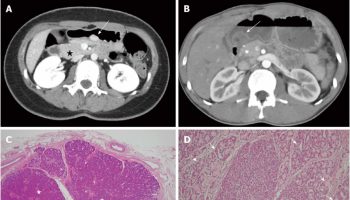What is hematemesis
Vomiting blood also called hematemesis could be a sign of a serious problem! You should go to your nearest emergency department. Call your local emergency number for an ambulance if vomiting blood causes dizziness after standing, rapid, shallow breathing or other signs of shock.
Call your local emergency services number if vomiting blood causes signs and symptoms of severe blood loss or shock, such as:
- Rapid, shallow breathing
- Dizziness or lightheadedness after standing up
- Blurred vision
- Fainting
- Confusion
- Nausea
- Cold, clammy, pale skin
- Low urine output
Seek immediate medical attention
Ask someone to drive you to the emergency room if you notice blood in your vomit or begin vomiting blood. It’s important to quickly identify the underlying cause of the bleeding and prevent more-severe blood loss and other complications, including death.
The amount and color of blood can vary. For example:
- you may have vomited large amounts of bright red blood
- there may be streaks of blood in your vomit, mixed up with food
- there may be what look like coffee grounds in your vomit, which means the blood has been in your stomach for a few hours
Keep a small sample of the vomit to show your doctor or the doctor treating you. It will give them a much better idea of what’s wrong.
Small streaks or flecks of blood in material you spit up may come from the teeth, mouth or throat and isn’t usually considered vomiting blood. Blood in vomit may be bright red, or it may appear black or dark brown like coffee grounds.
Swallowed blood, as from a nosebleed or forceful coughing, may cause bloody vomit, but truly vomiting blood usually represents something more serious and requires immediate medical attention. Bleeding in your upper gastrointestinal tract (mouth, esophagus, stomach and upper small intestine) from peptic (stomach or duodenal) ulcers or torn blood vessels is a common cause of vomiting blood.
Hematemesis causes
If you vomit blood, it means there’s bleeding somewhere in your oesophagus, stomach or the first part of your small intestine (duodenum).
Below is a summary of the most likely causes of blood in the vomit. It’s a rough guide that should give you a better idea of the problem.
However, don’t use it to diagnose yourself – always leave that to your doctor.
Vomiting blood may be caused by:
- Acute liver failure
- Aspirin
- Benign tumors of the stomach or esophagus
- Cirrhosis (scarring of the liver)
- Defects in gastrointestinal tract blood vessels
- Dieulafoy’s lesion (an artery that protrudes through the stomach wall)
- Duodenitis (inflammation in the first part of the small intestine)
- Esophageal cancer
- Esophageal varices (enlarged veins in the esophagus)
- Esophagitis (inflammation of the esophagus)
- Gastric erosions (breakdown of tissue lining the stomach)
- Gastric varices (enlarged veins in the stomach)
- Gastritis (inflammation of the stomach lining)
- Mallory-Weiss tear (tear in the esophagus associated with pressure caused by vomiting or coughing)
- Nonsteroidal anti-inflammatory drugs
- Pancreatic cancer
- Pancreatitis
- Peptic ulcer
- Portal hypertension (high blood pressure in the portal vein)
- Prolonged or vigorous vomiting
- Stomach cancer
In infants and young children, vomiting blood may also result from:
- Birth defects
- Blood-clotting disorders
- Milk allergy
- Swallowed blood, such as from the nose
- Swallowed object
- Vitamin K deficiency
Stomach ulcer or severe gastritis
If you vomit blood and also have a burning or gnawing pain in your tummy, the most likely causes are a stomach ulcer or severe inflammation of the stomach lining (gastritis).
Bleeding occurs when the ulcer or inflammation damages an underlying artery.
Esophageal varices
Esophageal varices are enlarged veins in the walls of the lower part of the esophagus. They bleed, but don’t usually cause any pain.
They’re often caused by alcoholic liver disease. If your doctor suspects esophageal varices are the cause of blood in your vomit, you’ll need to be admitted to hospital immediately.
Severe gastro-esophageal reflux disease
Gastro-esophageal reflux disease (GERD) is where acid leaks out of the stomach and up into the esophagus.
If you have severe GERD, it can irritate the lining of your esophagus and cause bleeding.
Tear in the esophagus
Prolonged retching can tear the lining of your esophagus (Mallory Weiss syndrome), which can also result in bleeding.
Swallowed blood
It’s possible to swallow blood in certain circumstances – for example, after a severe nosebleed.
The above conditions may also cause you to have blood in your stools, causing black, tar-like poo.
Less common causes of vomiting blood
Less commonly, blood in your vomit may be caused by:
- swallowing poisons – such as corrosive acid or arsenic
- a blood condition – such as a reduced number of platelets in the blood (thrombocytopenia), leukemia, hemophilia or anemia
- cancer of the esophagus or stomach cancer – cancer may be suspected if you’re over 55 and you’ve also lost a lot of weight; it’s otherwise rare
Vomiting blood treatment
Hematemesis can be caused by a wide range of pathologies and they differ in onset, location, risk and clinical presentation – you should be admitted to hospital straight away for tests. In patients with active gastrointestinal bleeding who are unstable, acute resuscitation should precede any investigations. Accurate clinical diagnosis is crucial in determining the investigation of choice and specific treatment interventions.
Investigations will include blood tests and an endoscopy. An endoscopy involves examining the inside of your digestive tract with a thin, flexible tube that has a light and camera at one end.
It’s important to confirm that the blood you’ve vomited has come from your stomach or gullet (esophagus) and you haven’t coughed it up from your airways or lungs, which would indicate a completely different problem.





